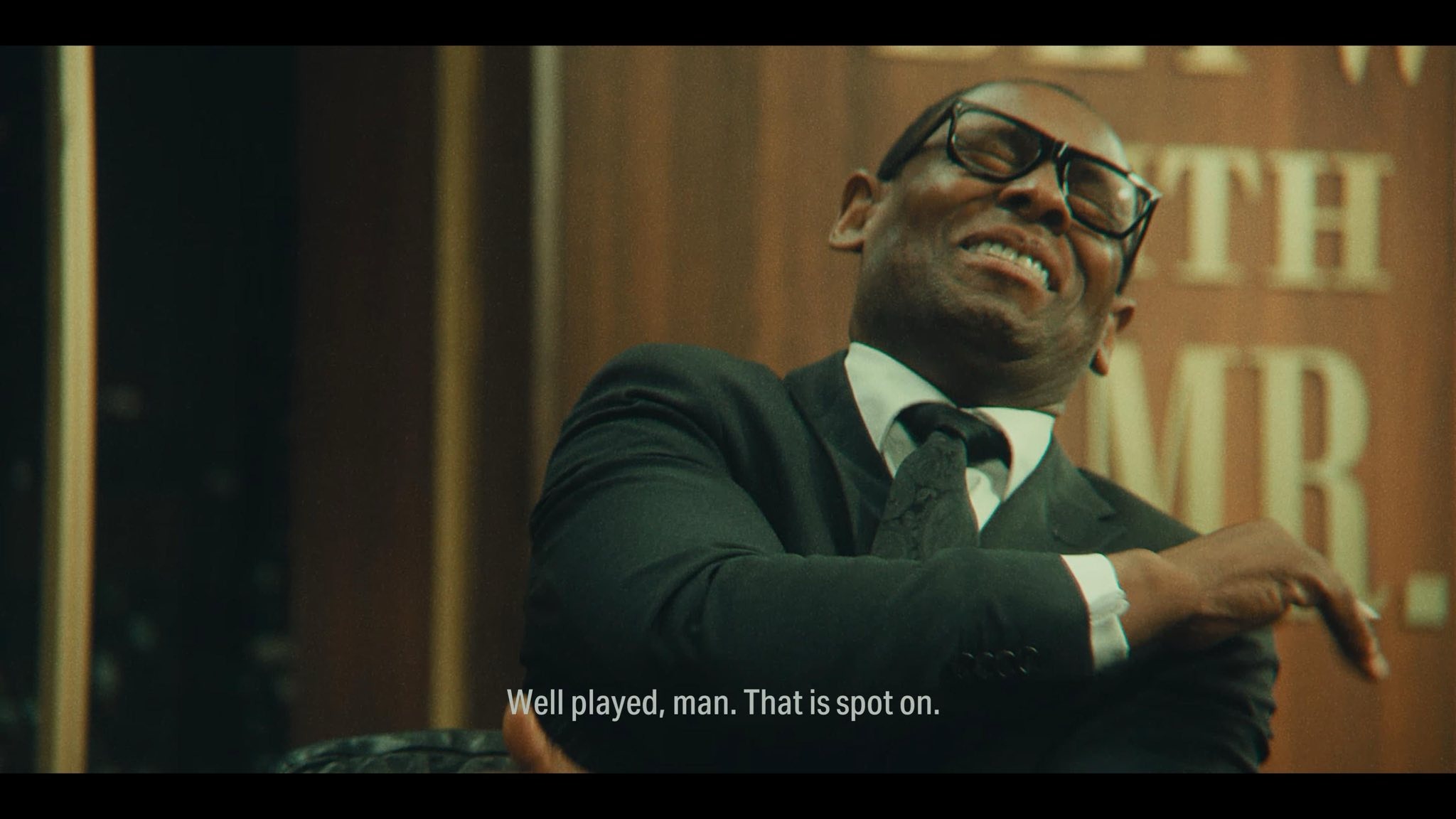Despite being a horror game, Alan Wake II is full of over-the-top joy. It relishes being a video game. It flips between moods like an ice skater using their built up momentum to spin, then spiral, then leap, through different tones and references, especially when music is involved.
Alan Wake II is a sequel to Finnish game developer Remedy Entertainment’s 2010 game Alan Wake. You play as FBI officer Saga Anderson, and also airport novel writer Alan Wake, who both end up having to use guns and flashlights to fight the forces of darkness (in a very literal way) in a small Pacific Northwest town. The game makes deliberate and specific gestures towards the references it’s drawing from—Twin Peaks, the novels of Stephen King, hardboiled detective paperbacks—before veering off in surreal, unexpected directions.
Some of these pieces come from Remedy’s own history. Alan Wake II folds itself all the way back to Max Payne, featuring a character that obviously references Remedy’s New York private eye. Now called Alex Casey, the character is voiced by James McCaffrey, who also voiced Payne. In the game’s live action sequences, Casey is played by Remedy creative director Sam Lake, who also provided his face for the original character model of Payne. Lake also shows up in a fictional talk show in universe as the actor who plays Alex Casey in the in-universe film adaptation of the Alex Casey novels, written by Alan Wake II deuteragonist Alan Wake.
Long time collaborators Poets of the Fall, who have written music for every Remedy game since Max Payne 2, also return for Alan Wake II, and it’s there that the game turns itself on its head. In the middle of a horror game that I have to play in the middle of the afternoon, that I alone out of all my coworkers have been brave enough to face, there is a musical sequence. The song “Herald of Darkness,” performed by Poets of the Fall acting as their in-game counterparts the Old Gods of Asgard, fluidly combines the self-indulgent melodrama of musicals and metal music.
The sequence takes place in the “Dark Place” where Alan Wake is trapped, looping through a talk show that ruminates over how he made such a mess of his life. He wanders through a backstage area while characters appear on giant screens around him, belting out extremely on the nose lyrics that mostly rehash the events of Alan Wake between very long guitar solos.
Part of what makes the scene work is Alan Wake II’s love of kitsch. Kitsch is like camp, but without an arched eyebrow calling attention to itself. It’s the so-called “low culture” of comic books, hair metal, and daytime soap operas. In musicals, characters sing when their emotions grow too great for merely speaking. In this musical sequence, those over-the-top emotions aren’t just the ways the characters are feeling, but the way the game seems to feel about itself and all of the mediums it draws from. The song pivots from metal to nightclub jazz, and the actors—not motion captured, but videos of recorded actors on a set—are projected above and around you, enveloping the player as they move through a set that looks like a black box theater. Meanwhile, you control Alan as he wields a gun and flashlight against enemies. It’s as if the game’s moods are too big to be contained by just watching a musical sequence or just engaging in combat. And in the midst of guitar solos, the choreography guiding you to each new sequence of dancing and fire fights, there’s no irony or shame in the way that the game engages with kitsch, or with all the things a video game can do.
This love of kitsch extends to the rest of the game, too. As much as Remedy is obsessed with Americana, Alan Wake II also introduces players to Finnish kitsch: an over the top love of coffee, beer, and saunas. You save by drinking a cup of coffee; each chapter ends on a cliffhanger like a tv show, then transitions into a new, original song; while you fight enemies they scream about pastrami sandwiches. It’s the kind of game where there’s a coffee-themed amusement park fully operational in the middle of the night, and it’s just the right combination of hilarious and frightening.

Some games approach the question of “are games art?” as a challenge to show how mature they are. They seek to be more visceral, more entrenched in realism, more emotionally harrowing. These kinds of games also wear their influences on their sleeves as a signal of their worldliness—Cormac McCarthy’s The Road because it is so uncompromising in its brutality; Game of Thrones for its unflinching violence. The dark, adult games of this type, like The Last of Us or Final Fantasy XVI, have garnered well-earned praise. Alan Wake II, while certainly scary, is not as brutal as either of those games, yet it still feels very “adult” in its approach to its own craft. It knows what it’s doing, and does so with a very specific goal in mind. Being grim and being kitsch are both stylistic choices—and overall, I find that kitsch fits more naturally with the way that video games tell their stories. Video games are kind of silly, but not in a bad way. Just in a way that allows you to, sometimes, shoot a flare gun at a mass of living shadow until it explodes into fireworks while a metal song narrates your actions.
It’s in its embrace of pulp and kitsch that Alan Wake II feels most like a video game. That means, at times, that it is pretty silly. It’s kind of like a guitar solo in that way—it’s self indulgent, but not punishing or mean. It’s fun, but also technical, a demonstration of hard earned knowledge and skill. It’s pure pleasure, the kind you disappear into until the curtain falls, and the house lights come back on.


